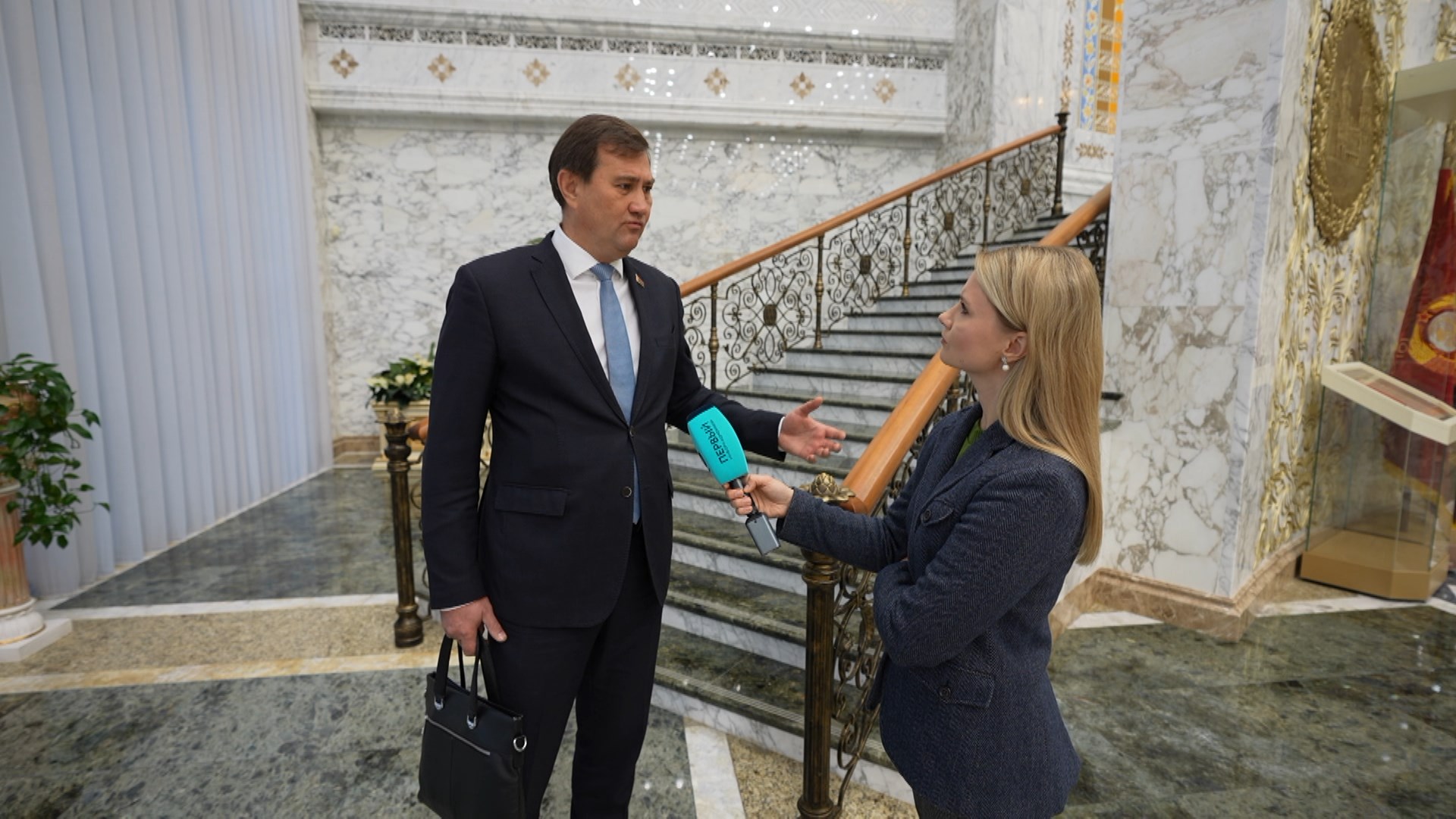3.66 BYN
2.97 BYN
3.45 BYN
Ryzhenkov: Belarus has no intention of closing its border with Lithuania
Lithuania, without warning, closed its border once again this week. Belarusian Foreign Minister Maxim Ryzhenkov called Lithuania's actions a provocation and a tool for intimidating the Lithuanian people. This issue, in the context of the international situation, was discussed on October 27 at a meeting between Belarusian President Alexander Lukashenko and Cardinal Claudio Gugerotti, the Pope's special envoy.
Maxim Ryzhenkov examined in detail the reasons for these actions, their consequences, and Minsk's plans for response, emphasizing that by such actions, the EU is isolating itself from the Eurasian space.
Lithuania cited incidents involving hot air balloons, which it claims were used to smuggle cigarettes from Belarusian territory, as the reason for tightening border regulations. According to the minister, Lithuania's actions are provocations aimed at finding pretexts to justify hostile actions against Belarus and Russia.
He emphasized that Belarus has not received any official notes on this matter, and that the smugglers themselves, if they exist, are acting with Lithuania's connivance.
"If these are organized gangs, then deal with them. Eliminate smuggling at home, and such issues won't arise," the minister noted.

The minister sees a broader purpose in this: "And all of this generally resembles some kind of provocation aimed at justifying certain anti-Belarusian and anti-Russian approaches, which could include the cessation of transit to the Kaliningrad region."
According to Maxim Ryzhenkov, such incidents are artificially inflated to create an image of an enemy and justify further harsh measures. "Figuratively speaking, it's difficult for them to justify anti-Belarusian actions to their own people, so they need to scrape together some kind of negativity that will make the intimidated Lithuanian citizen support the government's actions, because it's supposedly a threat from the east," the official emphasized.
The minister quoted President Lukashenko, who called the idea that "Belarus or Russia are going to march on Paris or London" "utter nonsense."
Responding to a question about Minsk's next steps, the Foreign Minister replied: "We are reacting calmly." He outlined three key principles of Belarus's position.
First, the EU's actions are steps of self-isolation: "All actions by the European Union to restrict Belarus, Russia, and so on are steps of self-isolation. And above all, we view this in this context. Because by restricting themselves from Belarus and Russia, they are restricting themselves from the entire Eurasian space."
The minister recalled the upcoming large-scale conference in Minsk, with countries ranging from Cambodia and Indonesia to European states: "Everyone is concerned about how our Eurasian space should develop. So, the European Union itself is separating from it. Not from Belarus and Russia, but from there: from India, Iran, China, and so on."
Secondly, Belarus is strengthening its border, but no more than necessary. "We have taken and will continue to take steps to protect our border. But no one will do more than we are obligated to do, as, strictly speaking, good neighbors," the minister noted.
Maxim Ryzhenkov emphasized that Belarus is not the source of the problems. "These illegal activities are carried out by gangs and criminal groups from Lithuania and illegal migrants from third-world countries. Belarus is not a source of illegal migration. These are the countries that created problems in other countries at one time – the European Union and the United States. Deal with the governments of third-world countries and improve their living standards after you've caused so much trouble – entire nations have fallen into poverty and hunger."
Thirdly, Belarus will not close the border in response, but will explain to the Lithuanian population the "anti-national nature of their government's actions." Furthermore, the issue will be raised in international organizations, and Vilnius's actions will influence the future development of bilateral relations.















